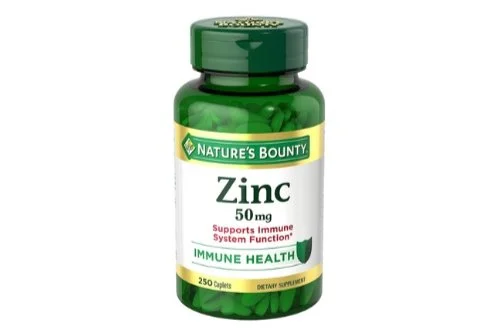Zinc's Role in Managing ADHD
Insights from a Carnivore Diet Perspective
Zinc, an essential trace element, plays a critical role in numerous bodily functions, including immune support and cognitive performance. Recent discussions have highlighted its importance in managing ADHD symptoms, particularly in dietary approaches. Zinc's potential to enhance concentration and reduce hyperactivity makes it a notable nutrient in ADHD treatment strategies.
The carnivore diet, which is focused exclusively on animal-based foods, is under scrutiny for its nutritional balance, especially concerning trace elements like zinc. While this diet provides substantial protein and fat, it also raises questions about vitamin and mineral completeness. For individuals with ADHD, ensuring adequate zinc intake might be a significant factor in managing symptoms.
Despite the carnivore diet's growing popularity, there remains skepticism about its overall nutritional adequacy. Research suggests that addressing nutritional factors such as zinc deficiency is crucial for those with ADHD. The potential benefits of zinc, combined with the high zinc content in meats, present an interesting perspective for those considering this diet to manage ADHD symptoms.
Understanding ADHD and Zinc
Zinc plays an essential role in neurodevelopmental processes. Deficiencies in this nutrient may influence the prevalence and severity of ADHD symptoms.
Role of Zinc in Neurodevelopmental Disorders
Zinc is vital for numerous enzymatic processes and neurotransmitter regulation in the brain. It is particularly significant in the modulation of dopamine, which is a key neurotransmitter implicated in ADHD. Adequate levels of zinc contribute to optimal brain function and development, affecting learning, behavior, and emotional regulation.
Research reveals that zinc deficiency can hinder these critical processes, leading to exacerbated symptoms in individuals with neurodevelopmental disorders. Ensuring appropriate zinc levels might support brain health and potentially mitigate some ADHD-related challenges.
ADHD Prevalence and Symptoms
Attention-Deficit/Hyperactivity Disorder (ADHD) affects a notable percentage of children and adolescents. It is characterized by symptoms such as hyperactivity, inattention, and impulsivity.
Prevalence rates vary, but it significantly impacts school performance, social interactions, and overall quality of life. Understanding these symptoms is crucial for identifying and managing the disorder effectively. Early intervention and appropriate nutritional support, including zinc, can play a role in addressing these challenges.
Significance of Nutrient Deficiencies in ADHD
Nutrient deficiencies, including zinc, are common among individuals with ADHD. Deficiencies can worsen symptoms and complicate management. Evidence suggests that correcting these deficiencies could have positive effects on behavior and cognitive function.
Parents and healthcare providers should be aware of these potential deficiencies. Regular nutritional assessments and targeted interventions may support better outcomes for individuals with ADHD. Addressing zinc levels specifically can be a beneficial component of a comprehensive ADHD management plan.
Zinc in the Human Body
Zinc is a crucial essential mineral that supports various biological functions. Its absorption and homeostasis are tightly regulated to ensure proper bodily functions.
Essential Mineral for Health
Zinc is vital for human health. It supports immune function, aids in protein synthesis, and promotes wound healing. The human body stores about 2-4 grams of zinc, with the highest concentrations found in muscles and bones.
Unlike some nutrients, zinc cannot be stored for long periods. Daily intake is necessary to meet the body's demands. Dietary sources include meat, shellfish, and seeds. Deficiencies can lead to growth retardation, impaired immune function, and cognitive impairments.
Zinc's Biological Functions
Zinc serves as a cofactor for over 300 enzymes. It is crucial in DNA synthesis and cell division. Zinc also plays a role in gene expression regulation and neurological functions by modulating neurotransmitters such as dopamine.
Moreover, zinc supports antioxidant defenses by protecting cells from oxidative damage. In the brain, it is crucial for hippocampal development, affecting memory and learning.
Regulation of Zinc Absorption and Homeostasis
Zinc absorption occurs primarily in the small intestine. The body's homeostatic mechanisms tightly regulate this process. Metallothioneins, small proteins that bind zinc, play a critical role in zinc storage and release based on body needs.
Intestinal absorption efficiency is influenced by dietary factors. Phytates found in grains can inhibit absorption, while animal proteins enhance it. The body's zinc levels are maintained through a balance of dietary intake, absorption efficiency, and excretion.
In summary, this essential mineral is indispensable for biological functions, and its precise regulation is key to maintaining overall health.
Impact of Carnivore Diet on Zinc Levels
The carnivore diet can significantly influence zinc levels in the body. This section explores the bioavailability of zinc from meat, how it compares to plant-based sources, and the efficiency of zinc absorption.
Meat as a Source of Highly Bioavailable Zinc
Meat, particularly red meat, is a significant source of highly bioavailable zinc. This means that the zinc found in meat is easily absorbed and utilized by the body.
For instance, zinc from beef, lamb, and pork is readily absorbed compared to other dietary sources. A serving of 100 grams of beef steak provides approximately 7 mg of zinc, contributing significantly to the daily recommended intake. The presence of animal proteins also enhances zinc absorption, creating a favorable environment in the digestive tract.
Comparison with Plant-based Sources
Plant-based sources of zinc are often less bioavailable compared to those from animal products. Phytic acid, found in many plant foods such as grains and legumes, can bind zinc and inhibit its absorption.
In foods like beans and whole grains, phytic acid reduces the bioavailability of zinc, making it more difficult for the body to utilize the mineral. While vegetarians can still meet their zinc needs, they may require higher intake levels to compensate for poor absorption. This contrasts sharply with the carnivore diet, where such inhibitors are absent.
Carnivore Diet and Zinc Absorption Efficiency
A carnivore diet typically results in higher efficiency of zinc absorption due to the absence of plant-derived inhibitors. The protein content in meat facilitates better zinc absorption by stimulating the production of stomach acid and zinc-binding ligands.
Studies suggest that individuals on a carnivore diet, consuming primarily animal products, may maintain optimal zinc levels more easily. This high absorption efficiency reduces the risk of zinc deficiency, supporting immune health, and cellular functions essential for managing conditions like ADHD.
The absence of competing compounds found in plant foods allows for more straightforward mineral uptake. Consequently, zinc from animal sources can meet physiological needs more effectively, benefiting those following a carnivore diet.
The Link between Zinc Deficiency and ADHD
Zinc plays a crucial role in brain function and development. A deficiency in this mineral has been linked to symptoms of ADHD, and research continues to explore how zinc supplementation can aid in managing these symptoms.
Symptoms of Zinc Deficiency
Zinc deficiency can manifest in various ways, impacting both physical and cognitive health. Common symptoms include impaired immune function, hair loss, diarrhea, and delayed wound healing. Cognitive symptoms can be particularly troubling, with attention deficits, memory issues, and mood disturbances appearing frequently.
In children, zinc deficiency may influence growth and development, contributing to behavioral issues similar to ADHD symptoms such as hyperactivity and inattentiveness. Recognizing these signs is essential for addressing potential deficiencies early on.
Zinc Deficiency and ADHD in Research
Several studies have investigated the connection between zinc levels and ADHD. Findings often highlight inconsistent results largely due to varying methodologies and sample sizes. For instance, one meta-analysis involving 14 studies showed no significant association between blood zinc levels and ADHD, with differences attributed to factors like sample size and zinc measurement techniques.
Meanwhile, other research indicates that children with ADHD might possess lower zinc levels compared to their peers. This has led to hypotheses suggesting that zinc supplementation could mitigate some ADHD symptoms, offering a potential avenue for treatment in cases where deficiency is confirmed.
For the most extensive selection, I suggest buying zinc online!
Addressing Deficiency to Manage Symptoms
Managing zinc deficiency involves ensuring adequate dietary intake or using supplements under professional guidance. Foods rich in zinc include meat, shellfish, dairy products, and legumes. A carnivore diet, which emphasizes consumption of animal products, can naturally boost zinc intake due to its focus on zinc-rich foods like red meat and liver.
For individuals with confirmed zinc deficiency, healthcare providers might recommend supplementation to restore optimal zinc levels. Addressing this deficiency not only helps with ADHD symptoms but also improves overall health. Regular monitoring ensures that zinc levels remain within a healthy range, optimizing both physical and cognitive function.
Zinc Supplementation Strategies
Zinc is a crucial mineral that plays significant roles in various bodily functions, including brain health and neurotransmitter regulation. Understanding the proper intake and potential risks of zinc supplementation is essential, especially for managing ADHD.
Recommended Daily Intake of Zinc
The recommended daily intake (RDI) of zinc varies by age, sex, and physiological conditions. For adults, the RDI is generally 8-11 mg/day. Pregnant or lactating women may require a higher intake. Children and adolescents need different amounts based on their growth stages.
Eating foods rich in zinc, such as red meat, poultry, seafood, beans, and nuts, helps meet these requirements. Those following a carnivore diet will likely find it easier to fulfill their daily zinc needs, considering the high zinc content in animal products.
Effective Supplementation for ADHD
Research has shown that zinc supplementation can be beneficial in managing ADHD symptoms. Doses in the range of 30-150 mg/day have been studied, with varying results.
Higher doses, such as 150 mg/day, over a period of 12 weeks, showed significant reductions in symptoms like hyperactivity and impulsivity. However, lower doses around 30 mg/day did not show significant improvement in ADHD symptoms, indicating that effectiveness might depend on the dosage.
Potential Risks of Excessive Zinc Intake
While zinc is essential, excessive intake can lead to adverse effects. Consuming zinc in amounts exceeding 40 mg/day for adults can result in nausea, vomiting, loss of appetite, and even more severe health issues in the long term.
Chronic high intake can interfere with the absorption of other critical minerals such as copper and iron, leading to deficiencies. Therefore, it's vital to balance zinc supplementation carefully.
Following the guidelines for safe supplementation ensures that individuals benefit from zinc's positive impacts without encountering its potential risks.
Clinical Findings and Professional Insights
Scientific research has provided valuable insights into the potential benefits of zinc and dietary approaches, such as the carnivore diet, in managing ADHD symptoms. Healthcare professionals offer recommendations based on clinical evidence to optimize treatment strategies.
Scientific Research and Evidence
Multiple studies, including meta-analyses, suggest that individuals with ADHD may have lower levels of zinc. PubMed and NCBI host numerous articles discussing this relationship. Research indicates that zinc is crucial for neurotransmitter function, which can impact focus and concentration.
A systematic review published on PubMed highlighted that screening zinc levels at the diagnosis stage of ADHD could be beneficial. Further well-designed studies are necessary to determine zinc’s precise role in ADHD etiology. Nutritional interventions could thus play a significant role.
Healthcare Professional Recommendations
Healthcare professionals often emphasize the importance of a balanced diet, including adequate zinc intake, for managing ADHD. They recommend dietary assessments coupled with blood tests to evaluate zinc levels. If deficiencies are detected, zinc supplements might be suggested as part of the treatment regimen.
Consulting healthcare providers ensures that zinc supplementation and dietary changes, such as adopting a carnivore diet, are safely integrated into existing ADHD treatments. Professionals also advise that any intervention be personalized based on individual health needs and conditions, reinforcing an evidence-based approach to ADHD management.
Nutritional Considerations for ADHD
Nutrition plays a critical role in managing symptoms of ADHD. Proper dietary choices, including zinc and other nutritional elements, can significantly impact attention, impulsivity, and hyperactivity.
Balancing Zinc with Other Nutritional Elements
Zinc is essential for cognitive functions and neurological health. Studies suggest children with ADHD often have lower zinc levels. Integrating zinc-rich foods like meat, shellfish, seeds, and nuts into the diet is beneficial.
However, balance is key. Excess zinc can interfere with copper absorption, leading to deficiencies. It's important to ensure adequate intake of all essential nutrients, including vitamins and other minerals, to support overall health and address ADHD symptoms effectively.
Impact of Diet on ADHD Symptoms
Diet patterns significantly influence ADHD symptoms. Nutritional approaches like the DASH diet, rich in fruits, vegetables, and low-fat dairy, have shown positive effects on behavior and mental focus. Reducing sugar and avoiding additives can also help improve attention spans.
Similarly, exclusive diets such as gluten-free or elimination diets are sometimes used but require careful monitoring and guidance from healthcare professionals to ensure balanced nutrition.
Nutritional Interventions and Mental Wellness
Integrating specific dietary interventions can enhance mental wellness in individuals with ADHD. Ensuring a diet rich in omega-3 fatty acids, often found in fish and certain plant oils, may help reduce hyperactivity and improve cognitive functions.
Including magnesium, iron, and vitamin D is also beneficial for brain health. Regular meals and snacks with a nutritional balance can help maintain blood sugar levels and stabilize mood and energy, thus contributing to better management of ADHD symptoms.
Careful planning and monitoring by healthcare providers are essential to tailor dietary interventions to individual needs and ensure comprehensive nutritional support.
Skip the lines and order your magnesium, iron, and vitamin D online for a stress-free shopping experience!
Conclusion
Zinc has demonstrated potential benefits in managing ADHD symptoms.
ADHD, a neurodevelopmental disorder, often requires a multifaceted approach. Nutritional strategies, including zinc supplementation, may enhance these efforts.
Zinc plays a significant role in brain function and development. It may help improve concentration and reduce hyperactivity and impulsivity in individuals with ADHD.
A carnivore diet may provide adequate zinc levels, given that animal-based foods are rich sources of this essential mineral.
Ensuring proper zinc intake could be beneficial as part of a comprehensive strategy to manage ADHD. Dietary interventions focusing on zinc-rich foods might support improved symptom management. In sum, incorporating zinc through a carnivorous approach could be a valuable addition to traditional ADHD treatment plans.









